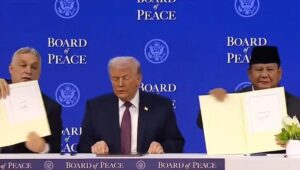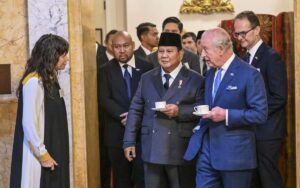Indonesia Urges Inclusive Global Financial System at G20 FMCBG Meeting in South Africa

Jakarta, The Gulf Observer: Indonesian Finance Minister Sri Mulyani Indrawati has called for a more inclusive and stable international financial architecture during the G20 Finance Ministers and Central Bank Governors (FMCBG) Meeting held in South Africa from July 17–18, 2025.
In an official statement received in Jakarta on Saturday, Minister Sri Mulyani emphasized that the global financial system must cater to the needs of all economies — from low-income and developing countries to advanced nations — to ensure balanced and sustainable global progress.
She noted that Multilateral Development Banks (MDBs) are actively implementing the G20 Roadmap for MDBs Reform, alongside the recommendations of the Capital Adequacy Framework (CAF) report, as part of ongoing efforts to bolster financial support for development priorities.
The Minister also addressed the increasing influence of financial technologies, including digital currencies and crypto assets, recognizing their potential to enhance financial services through improved speed and efficiency. However, she cautioned that these innovations carry inherent risks that must be mitigated through international cooperation and regulation.
“This evolving landscape demands that G20 countries reassess the foundations of the international financial architecture to ensure it remains stable, inclusive, and relevant in an increasingly dynamic world,” she stated.
The high-level meeting gathered G20 finance ministers and central bank governors to deliberate on pressing global challenges and common priorities, including the global economy, international financial system, sustainable finance, infrastructure development, international taxation, and global health.
On the global economy, participants expressed concerns over heightened uncertainties stemming from ongoing armed conflicts, geopolitical tensions, trade fragmentation, rising sovereign debt levels, and severe climate-related events.
Minister Sri Mulyani underscored the importance of redefining global economic relations, which are often perceived as a zero-sum game. “Trade and investment should be instruments of shared progress, creating added value for all parties involved,” she said.
Domestically, Indonesia is navigating these challenges through prudent fiscal management. “We are using countercyclical fiscal instruments to absorb economic shocks and push forward structural reforms. Inflation is under control at 1.6 percent, and the fiscal deficit stands at 2.5 percent,” she added, highlighting close coordination with monetary authorities to maintain economic stability and investor confidence.
On international taxation, she stressed the urgency of establishing a fair, effective, and resilient tax architecture to support global equity and sustainable development goals.
The G20 members also agreed on the need for greater global coordination in sustainable finance, especially to ensure interoperability and climate finance efficiency, while supporting adaptation, resilience, and a transition toward a low-carbon economy.
In the area of infrastructure, the group reaffirmed its commitment to investing in quality infrastructure as a foundation for faster and more inclusive economic growth.
Concluding the two-day forum, G20 ministers and governors reiterated their support for a robust and open financial system, stressing the importance of addressing vulnerabilities and fully implementing international standards, including the Basel III framework, to safeguard global financial stability.


